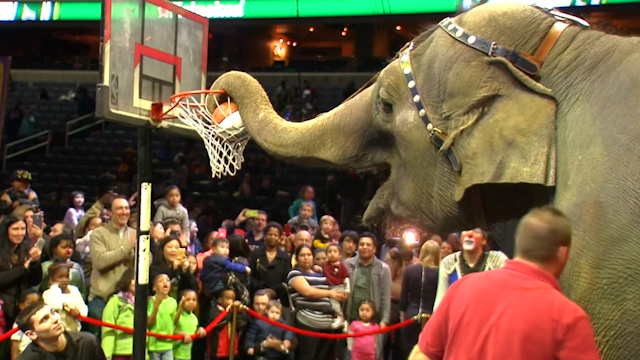Ringling Bros and Barnum & Bailey retires its elephants

The Ringling Bros and Barnum & Bailey Circus has finally retired its performing elephants that were seen in their final act on 1 May at Rhode Island. The circus has been using elephants in its performances for 146 years despite decades of criticism by animal rights groups and others over the circus' treatment of animals.
Feld Entertainment, the circus' parent company, said the move was purely for economic reasons. The Florida headquartered company explained that it cost about $65,000 (£44,485, €56,689) a year to take care of the 11 touring elephants.
Rachel Mathews, animal law enforcement counsel at the Peta Foundation, opined: "Ringling Bros is pulling elephants off the road because of failing financial returns from a public that lost a taste for abusive elephant acts long ago and legislatures that are banning them on the grounds of cruelty. The circus is making this concession in an attempt to increase ticket sales, but it's not enough."
Feld had taken a decision to retire its elephants in January. The company had then announced that the elephants would be retired to its 200-acre Centre for Elephant Conservation in Polk City, Florida.
The Humane Society, a group that fights against human or animal suffering, argued that retiring the elephants was not enough and that the company should also end its breeding programme at Ringling's Florida centre. The group has asked for the elephants to be retired to either the California sanctuary or the Tennessee sanctuary, both of which are spread over 2,000 acres.
Feld has said it has the most successful breeding programme in North America. It has also argued that it can accommodate the elephants in the space it has.
The circus is continuing to use other animals such as tigers, horses, dogs, camels and lions for performance at its shows, which has drawn criticism from many including Mathews. "Continuing to force tigers, bears, and other animals to live in cages that are barely bigger than they are won't stop either the protests or the public outcry," Mathews said.
© Copyright IBTimes 2025. All rights reserved.





















